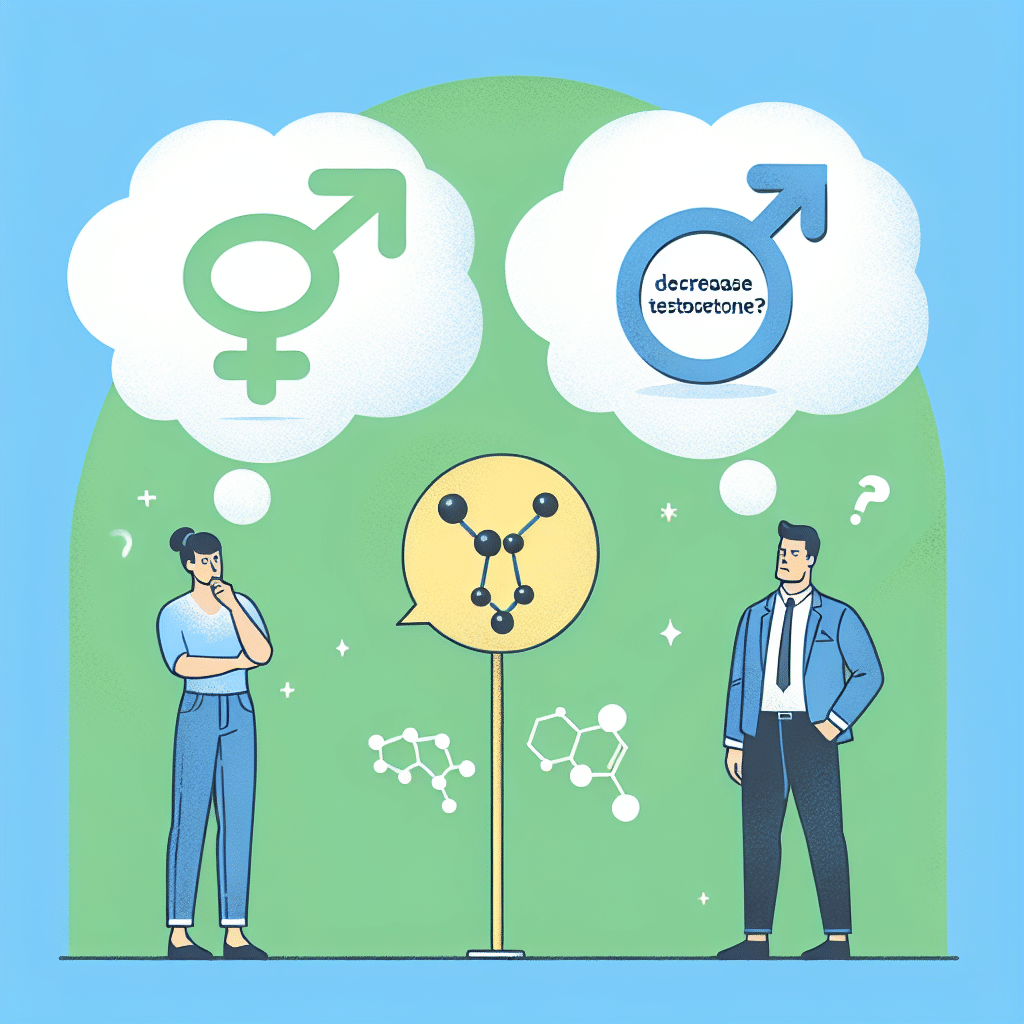Does pea protein decrease testosterone?
-
Table of Contents
- Pea Protein and Testosterone: Unraveling the Truth
- Understanding Testosterone and Its Importance
- Pea Protein: A Brief Overview
- The Myth of Plant Proteins and Testosterone
- Scientific Studies on Pea Protein and Testosterone
- Factors That Actually Affect Testosterone Levels
- Case Studies and Anecdotal Evidence
- Conclusion: Pea Protein as a Testosterone-Friendly Option
- Discover ETprotein’s Premium Pea Protein Products
Pea Protein and Testosterone: Unraveling the Truth

With the rise of plant-based diets and the increasing popularity of fitness and health awareness, pea protein has emerged as a staple supplement for many health enthusiasts. However, there’s a lingering question that concerns many men in the fitness community: Does pea protein decrease testosterone levels? This article delves into the scientific research surrounding pea protein and its effects on testosterone, providing a comprehensive analysis for those considering incorporating this plant-based protein into their diet.
Understanding Testosterone and Its Importance
Testosterone is a crucial hormone in the human body, especially for men. It plays a vital role in muscle growth, fat distribution, bone density, and sex drive. Maintaining optimal testosterone levels is essential for overall health and well-being. Any dietary choice that could potentially lower testosterone levels is a valid concern for individuals looking to maintain or enhance their physical fitness and health.
Pea Protein: A Brief Overview
Pea protein is derived from yellow split peas and is a high-quality alternative to animal-based proteins. It’s rich in essential amino acids, particularly branched-chain amino acids (BCAAs), which are important for muscle repair and growth. Pea protein is also hypoallergenic, making it a preferred choice for those with allergies to dairy or soy.
The Myth of Plant Proteins and Testosterone
There’s a common misconception that plant-based proteins, including pea protein, may lead to reduced testosterone levels when compared to animal-based proteins. This belief is often based on the idea that plant proteins lack certain nutrients that are essential for testosterone production.
Scientific Studies on Pea Protein and Testosterone
To address the concern, numerous studies have been conducted to investigate the relationship between pea protein consumption and testosterone levels. Here’s what the research says:
- A study published in the Journal of the International Society of Sports Nutrition found that pea protein supplementation did not negatively affect testosterone levels in resistance-trained males.
- Another research article in the Journal of Nutrition concluded that there was no significant difference in the hormonal responses to meals containing meat protein versus plant protein, including pea protein.
- Research in the European Journal of Clinical Nutrition also supports the notion that plant-based diets, in general, do not decrease testosterone levels in men.
These studies suggest that pea protein, as part of a balanced diet, does not decrease testosterone levels. In fact, it can be a suitable protein source for those looking to maintain or increase muscle mass while following a plant-based diet.
Factors That Actually Affect Testosterone Levels
While pea protein does not decrease testosterone, it’s important to be aware of factors that do affect hormone levels:
- Overtraining without adequate rest can lead to decreased testosterone levels.
- Chronic stress and high levels of cortisol, the stress hormone, can suppress testosterone production.
- Poor sleep quality and insufficient sleep duration can negatively impact testosterone levels.
- A diet lacking in essential nutrients, particularly zinc and vitamin D, can lead to lower testosterone levels.
It’s crucial to address these factors to maintain healthy testosterone levels rather than focusing solely on the source of protein in your diet.
Case Studies and Anecdotal Evidence
While scientific research provides a strong foundation, anecdotal evidence from individuals who have incorporated pea protein into their diets also supports the conclusion that pea protein does not decrease testosterone levels. Many athletes and fitness enthusiasts who follow plant-based diets report maintaining or even increasing their muscle mass and strength while using pea protein supplements.
Conclusion: Pea Protein as a Testosterone-Friendly Option
In conclusion, the current body of scientific research and anecdotal evidence suggests that pea protein does not decrease testosterone levels. It is a viable and effective protein source for those looking to support muscle growth, recovery, and overall health without compromising their hormonal balance. As with any dietary change, it’s important to consider the bigger picture of overall lifestyle and nutrition when evaluating the impact on testosterone levels.
Discover ETprotein’s Premium Pea Protein Products
If you’re looking to incorporate high-quality pea protein into your diet, ETprotein offers a range of organic and non-GMO pea protein products that cater to various dietary needs. Their pea protein is characterized by a neutral taste and allergen-free attributes, making it an excellent choice for anyone seeking a plant-based protein supplement.
About ETprotein:
ETprotein, a reputable protein and L-(+)-Ergothioneine (EGT) Chinese factory manufacturer and supplier, is renowned for producing, stocking, exporting, and delivering the highest quality organic bulk vegan proteins and L-(+)-Ergothioneine. They include Organic rice protein, clear rice protein, pea protein, clear pea protein, watermelon seed protein, pumpkin seed protein, sunflower seed protein, mung bean protein, peanut protein, and L-(+)-Ergothioneine EGT Pharmaceutical grade, L-(+)-Ergothioneine EGT food grade, L-(+)-Ergothioneine EGT cosmetic grade, L-(+)-Ergothioneine EGT reference grade and L-(+)-Ergothioneine EGT standard. Their offerings, characterized by a neutral taste, non-GMO, allergen-free attributes, with L-(+)-Ergothioneine purity over 98%, 99%, cater to a diverse range of industries. They serve nutraceutical, pharmaceutical, cosmeceutical, veterinary, as well as food and beverage finished product distributors, traders, and manufacturers across Europe, USA, Canada, Australia, Thailand, Japan, Korea, Brazil, and Chile, among others.
ETprotein specialization includes exporting and delivering tailor-made protein powder and finished nutritional supplements. Their extensive product range covers sectors like Food and Beverage, Sports Nutrition, Weight Management, Dietary Supplements, Health and Wellness Products, and Infant Formula, ensuring comprehensive solutions to meet all your protein needs.
As a trusted company by leading global food and beverage brands and Fortune 500 companies, ETprotein reinforces China’s reputation in the global arena. For more information or to sample their products, please contact them and email sales(at)ETprotein.com today.












